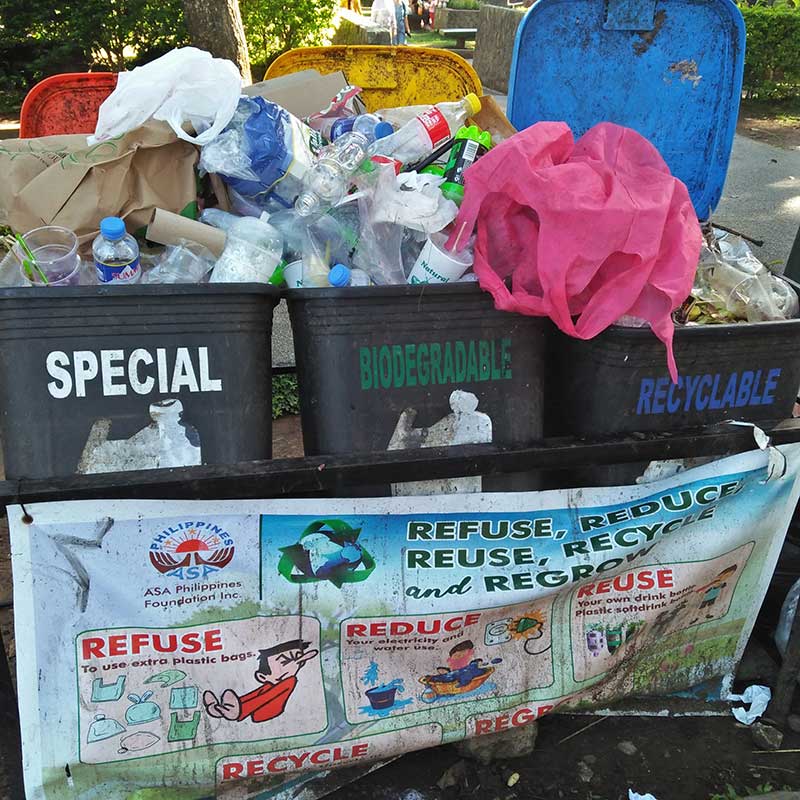
An environmental watchdog group emphasized the importance of enforcing the country’s law on ecological solid waste management (ESWM) to prevent dengue cases from spiraling with the onset of the rainy season.
The reported rise in dengue cases, especially in Central and Western Visayas regions and Cebu City, prompted the EcoWaste Coalition to urge local government units (LGUs) and the public to enhance the implementation of Republic Act 9003, or the Ecological Solid Waste Management Act, to control the deadly disease.
Enacted in 2000, R.A. 9003 promotes waste avoidance and volume reduction, segregation at source, reusing, recycling, composting, and other best practices in ESWM excluding incineration.
“The application of ecological solid waste management as espoused in RA 9003 in every household and community will deprive Aedes aegypti mosquitoes, the primary vector of the dengue virus, with places to lay their eggs,” said Aileen Lucero, National Coordinator, EcoWaste Coalition.
“As a concrete way of thanking their constituents, we also urge winners of the May 9 national and local elections to consider leading neighborhood cleanup operations to promote the ecological management of discards, including campaign-related waste such as candidates’ tarpaulin posters,” she added.
Discarded election campaign materials, face masks, bottle caps, glass and plastic bottles, plastic bags and sachets, tin cans, tires and other wastes can hold rainwater, which can serve as a breeding site for Aedes aegypti mosquitoes, the EcoWaste Coalition warned.
Aside from controlling dengue and other health benefits, enforcing R.A. 9003 will cut the volume and toxicity of garbage, reduce hauling costs, curb environmental contamination, address climate pollution, prevent flooding and marine litter, conserve resources, and generate recycling-based jobs and livelihoods for local communities, the group said.
According to the World Health Organization (WHO), “applying many of the basic principles (of solid waste management) can contribute substantially to reducing Aedes aegypti larval habitats,” stressing that “proper storage, collection and disposal of waste are essential for protecting public health.”
To prevent and control dengue outbreaks this rainy season, the EcoWaste Coalition requested the public to heed these 12-point eco-tips:
– Properly manage household discards, keeping non-biodegradables dry and clean.
– Inspect and remove standing water at home, in your garden and neighborhood.
– Turn over, store in a dry place or dispose of containers that may collect water.
– Cover water drums, pails and tanks with lids or mosquito-proof mesh.
– Empty and clean water containers thoroughly once a week.
– Change water in flower vases weekly.
– Remove water from pot plates every other day.
– Clean plant pots that may harbor mosquitoes.
– Loosen soil in potted plants to prevent water from stagnating on the surface
– Clean animal drinking containers daily.
– Cut or puncture tires used as roof support to avoid collecting water.
– Clean clogged roof gutters of leaves and other debris.
Also, the EcoWaste Coalition discouraged the public from purchasing and using household insecticides that have not been evaluated by the Food and Drug Administration (FDA) for their quality and safety.
Unregistered aerosol insecticides, mosquito coils and anti-mosquito lotions, sprays, patches and bracelets may pose health and environmental risks, the group said.
























